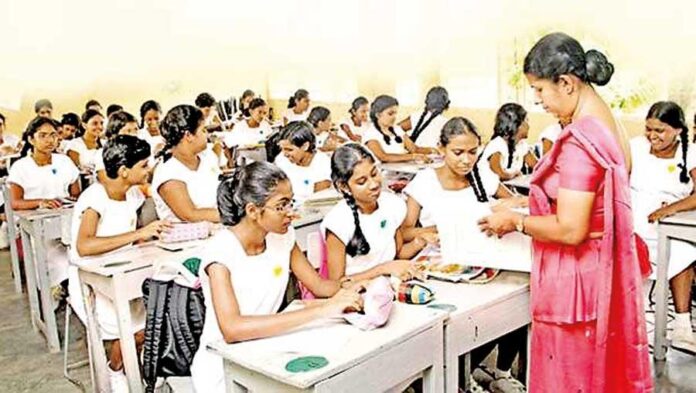Colombo, November 7 – The Ministry of Education, Higher Education, and Vocational Education announced that Sri Lanka’s school system will transition to a learning-centered education model focusing on practical knowledge and skills under the upcoming 2026 education reforms.
Addressing a press briefing held yesterday (6), Ministry Secretary Nalaka Kaluwewa stated that the reforms will be implemented for students entering Grade 1 and Grade 6 in 2026, marking the beginning of a long-term transformation in the education sector.
“A Grade 1 student who starts under this new reform will leave school after 13 years, around 2036 or 2037. So, this is a long-term process,” Kaluwewa explained.
Currently, Sri Lanka has 10,076 schools, with 12,626 Grade 1 classrooms serving 282,293 students, and 11,291 Grade 6 classes accommodating 323,896 students. Kaluwewa noted that these students will form the foundation of the reform rollout.
Teacher Training and Preparation
Kaluwewa emphasized that teacher training is a key component of the reform. The training program consists of two stages:
- The Training of Trainers (ToT) phase, conducted by the National Institute of Education (NIE), is 99% complete, with nearly 10,000 master trainers already trained.
- The second phase aims to train 136,065 teachers islandwide, using the master trainers, and is currently in progress.
He confirmed that all teacher training will be completed by December 31, 2025.
New Learning Materials and Parental Awareness
The Ministry has prepared 106 new learning modules for Grades 1 and 6 for the first term of 2026, with printing in its final stages and expected to finish by November 15. The materials will be distributed to schools before the new academic year begins.
An awareness program for parents will also be held in December 2025 to familiarize them with the upcoming changes in the education system.
Revised School Timetable
Kaluwewa announced that the duration of a school period will be extended to 50 minutes, as recommended by the NIE, to support practical and activity-based learning. Consequently, the number of periods per day will be reduced from eight to seven, while interval durations will be increased.
He clarified that the reform is not merely about extending school hours but about enhancing the quality of learning. The new timetable will apply to all grades:
- Grades 1 to 4 will follow a common schedule.
- Grades 5 to 13 will have an additional 30 minutes added to their school day.
Transport Coordination
Addressing potential transportation concerns, Kaluwewa said the Ministry has held discussions with the Transport Ministry, National Transport Commission, Road Passenger Transport Authority, and the Railway Department. All relevant agencies have agreed to adjust transport schedules to align with the new school hours.
Implementation and Access
Kaluwewa confirmed that all circulars related to the reforms have already been issued and are available on the official Ministry of Education website for public access.
He concluded by reiterating that the 2026 education reforms represent a major step toward a modern, skill-oriented, and student-centered education system designed to prepare Sri Lankan students for future global challenges.
